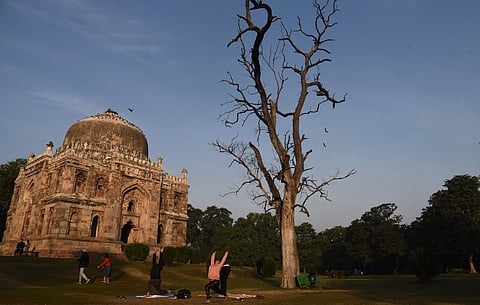

NEW DELHI: Officials of the Public Works Department (PWD) have said that they don’t have enough funds or resources to sprinkle water on trees lining city roads.
The exercise had been mandated by Supreme Court-appointed Environment Pollution & Prevention Control Authority (EPCA), under its Graded Response Action Plan (GRAP). The GRAP measures were in force in the city in the wake of runaway air pollution levels. The measures recommended include closure of schools and toxic smoke-spewing industries, sprinkling of water on trees and mechanised sweeping of roads, among others.
PWD officials said while the maintenance of trees and plants are ensured round-the-clock, the department is struggling to summon sprinkle water on them. Planting more trees to boost the city’s green cover is considered essential to taming pollution and cleansing toxic air.
“While we have been directed to sprinkle water on trees, what makes the task more challenging for us is that old or fully grown trees absorb water a lot faster than saplings and need more watering. We don’t have enough funds on hand, making it even tougher for us to manage,” a PWD official told this newspaper.
“In most cases, we tell our tanker operators to sprinkle water on the leaves, hoping some bit of it will seep into the soil,” the official said.
A horticulture expert said with dust and pollutants gathering on the leaves, there’s a risk of the stomata — pores through which plants release oxygen — closing. “We want our plants to absorb as much of the city’s carbon dioxide as it can and release oxygen. Smog can also affect photosynthesis in newly laid plants, thus resulting in their death,” he said.